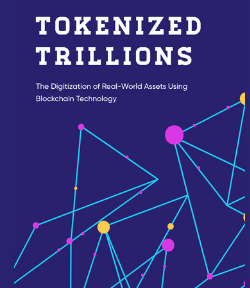
The 7 Banking And Fintech Trends That Will Define 2026
The financial services industry is entering a transformative year as AI agents automate everything from compliance checks to personal portfolio management.
Banking and Fintech Innovations Shaping 2026
As the financial sector stands on the cusp of a radical transformation, seven key trends are set to define banking and fintech in 2026, driven by technological advancements and shifting consumer expectations. Among the foremost developments is the exponential growth of tokenized assets, which are projected to create a $25 billion market. This evolution enables seamless asset digitization, unlocking liquidity and fractional ownership opportunities previously inaccessible to many investors.
Artificial intelligence agents will permeate every aspect of financial services, from automating compliance verification to delivering personalized portfolio management and financial advice. This widespread AI integration streamlines operations and enhances user experience by enabling faster, more accurate decision-making while reducing costs. The rise of conversational AI assistants further democratizes access to sophisticated financial tools for retail users.
Quantum Computing and Cybersecurity
Major institutions are investing heavily in quantum computing, which holds the promise of solving complex optimization problems but also raises concerns for cryptographic security. The industry faces a race to implement quantum-resistant algorithms ensuring long-term data protection. These breakthroughs are prompting regulatory bodies and tech providers to adapt swiftly, balancing innovation with risk mitigation.
Open Banking and Embedded Finance
Open banking frameworks will expand, promoting interoperability between traditional banks and fintech startups. Embedded finance—integrating financial services into non-financial platforms—will grow, enabling brands to offer tailored payment and lending solutions directly within user experiences. This trend encourages a move from product-centric offerings to ecosystem-driven services, where customer engagement is paramount.
Sustainability and Ethical Finance
Environmental, social, and governance (ESG) principles will drive fintech product development as consumers increasingly prioritize ethical investment options and sustainable banking practices. Green fintech innovations, including carbon-tracking tools and impact investing platforms, will gain significant traction, aligning financial growth with planetary stewardship.
Collectively, these trends mark 2026 as a pivotal year for financial services, where technology and ethical imperatives converge to create more inclusive, secure, and intelligent banking experiences worldwide.
Original Source
Read the original article from Forbes
Recommended Articles

Bitcoin And Gold Are Two Phases Of The Same Monetary Revolution — Here’s How
In the often-heated debates about the future of finance, Bitcoin and gold are frequently pitted against each other as competing assets. However, this perspective overlooks a more profound truth, and there are two distinct and complementary manifestations of t…

In crypto’s casino, Bitcoin stands alone as the ultimate prize
If you’ve ever bought a token only to find out its grand use case was “having a token,” congrats, you played the game just right. Wolf of All Streets’ Scott Melker sums it up best. After years wandering crypto’s high-stakes tables, he’s upgraded his stance fr…

EU set to expand supervision of stock and crypto exchanges
Esma to also settle disputes between large asset managers, according to proposals





